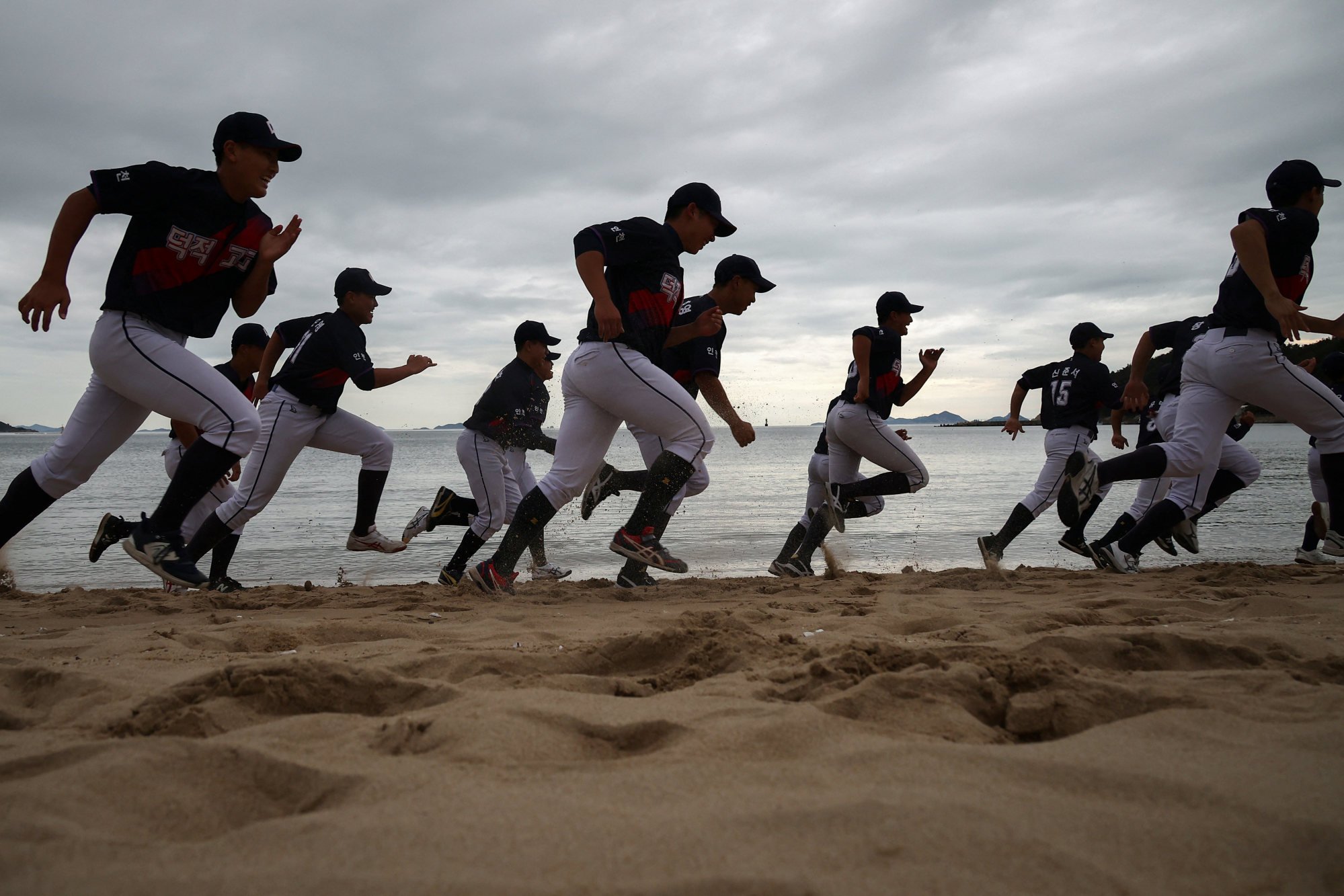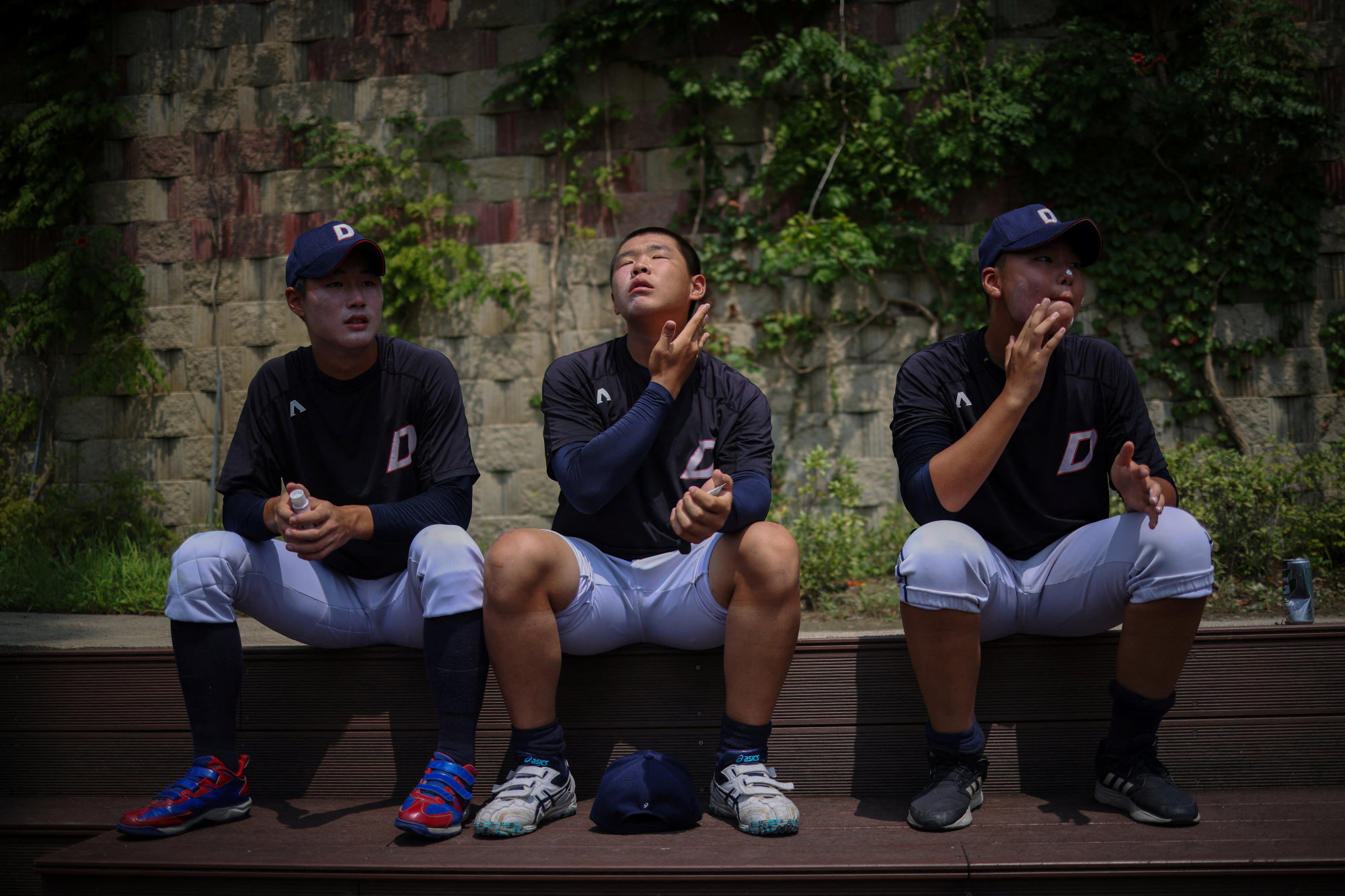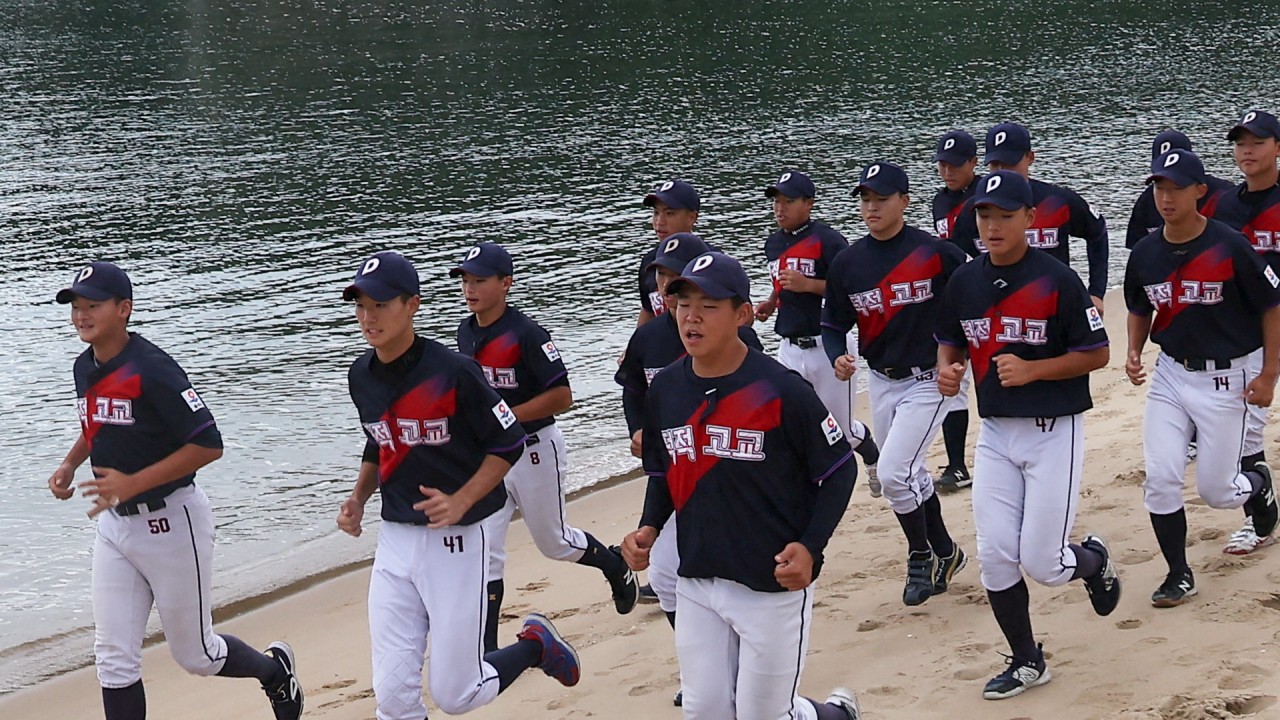On South Korea’s remote island of Deokjeok, a high school baseball team injects life into its rapidly ageing society
[ad_1]
Dreaming of making it big in baseball, teen brothers An Seung-han and An Seung-young travelled hundreds of kilometres from home to remote Deokjeok island, where the sport and their team, are now the closest thing they have to a family.
“If I work hard here, I can be a main player, so I’m working even harder. If I keep doing well, I can also become a professional baseball player,” 16-year-old Seung-young, the younger brother, said during a training session.

In addition to helping the boys achieve their dreams, the sports academy has breathed life into Deokjeok, which was struggling to retain, and attract, youngsters, like many other rural areas in the world’s most rapidly ageing society.
The island has a population of 1,800, most of them elderly.
Last year, it was on the brink of losing its last school under a nationwide school board guideline that stipulates closures if the number of students falls below 60.
The players who come here come with an amazing mindset. You don’t come here unless you’re willing to give up everything
That has now changed, thanks to Kim and his friend Chang Kwang-ho, manager of the Deokjeok High School baseball team.
“The players who come here come with an amazing mindset. You don’t come here unless you’re willing to give up everything,” said Chang.
Although the island is less than two hours away from the city of Incheon, it remains quite isolated from the mainland, and is much less developed.
‘Focus on the goal’
Kim and Chang set up their baseball academy in 2022 with 28 students, offering both regular classes and specialised training. Thirteen more have joined in 2023, and the school team has already made it to the round of sixteen in the prestigious Golden Lion tournament.
“These players want to play in the professional league and that’s what we’re trying to get them to do,” said Chang, a former KBO catcher and coach.
“We’re hoping to send a couple of players to professional teams next year,” he added.

Part of the team’s success can be attributed to the relatively generous funding they receive from local grants that compensate for the dredging of sand off the island’s shore, which is crucial to construction projects in Seoul, Chang said.
Some residents, however, begrudge this money going to outsiders. Others welcomed the influx of fresh faces.
“We’re happy to have students here. It’s so much better to have more and more students coming because we are worried that the number of young people keeps decreasing,” said 82-year-old resident Kim In-soon.

Deokjeok is the largest of the Ongjin islands and its population has shrunk from more than 12,000 residents in the 1950s, a fate shared by almost 500 of the more than 3,400 islands that are still inhabited.
For players like the An brothers, being on such a remote place means there is little else to do but study and train.
“All we have is the field and the ball and baseball … so it can get pretty boring but I think it helps us focus on our goal,” said An Seung-han, the older brother and a starting pitcher who is a year away from graduation.
[ad_2]
Source link


